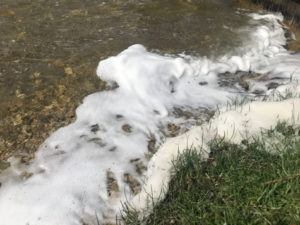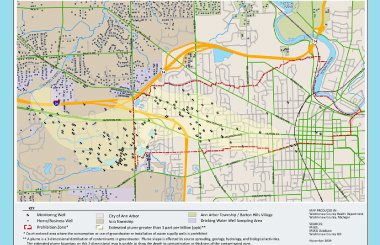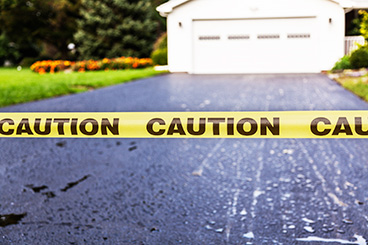While there are many sources of river pollution, some contaminants are more prevalent. Currently, HRWC is addressing these chemical contaminants.
PFAS

Raise our voice, never letting up. HRWC is working with the State, researchers, and other organizations to address PFAS. We have also coordinated community events for the public to learn about the status of research and action directly from experts and local and state representatives.
HRWC has developed a clear strategy for state and federal governments to follow. Although PFAS contamination will remain in the river for years to come, we can take steps now to protect our water for future generations.
Learn more about PFAS and what’s new1,4-Dioxane

Taking it to the court. Because we thought the river needed a strong advocate and we were concerned about a lack of action to cleanup 1,4-Dioxane, HRWC, the City of Ann Arbor, and Washtenaw County joined the MDEQ’s lawsuit against Gelman in 2016. Gelman Sciences (now Pall Corp., a division of Danaher Corp.) is responsible for the 1,4-Dioxane plume.
Because the case is pending, HRWC is not able to discuss the details of the court case due to ongoing litigation and the confidentiality restrictions in place. However, we will continue to provides updates about the progress of this litigation as information is made publicly available.
Learn more about 1,4-DioxaneCoal Tar
Demanding safer sealing to protect people and the environment. HRWC is advocating for policy changes and educating residents to protect the watershed from toxic coal tar.
 In Michigan, coal tar-based sealcoat is applied widely on driveways, parking lots, and even playgrounds. Sealcoat applicators and their customers say the product enhances the look of weathered asphalt surfaces and prolongs product life. However, coaltar sealcoat can pose significant risks to humans and aquatic life.
In Michigan, coal tar-based sealcoat is applied widely on driveways, parking lots, and even playgrounds. Sealcoat applicators and their customers say the product enhances the look of weathered asphalt surfaces and prolongs product life. However, coaltar sealcoat can pose significant risks to humans and aquatic life.
HRWC has met with several townships to advocate for ordinances that prohibit sealcoats containing coal tar and are pleased to report that many have done so (see list below.) There are alternative products that are comparably priced. We are also working to get a statewide ban.
Learn more about coal tar



